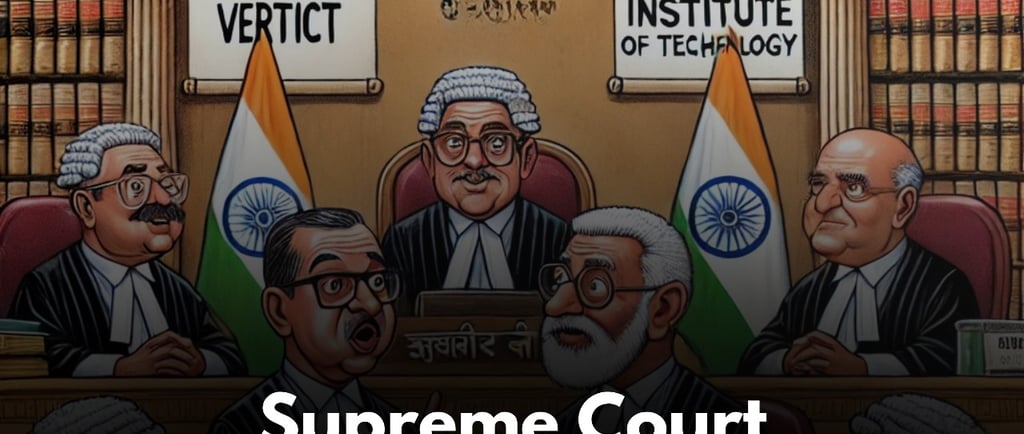Supreme Court Upholds Retirement Age in CSIIT Dispute
The Supreme Court of India has upheld the retirement age of 60 years for faculty and administrative staff in the CSI Institute of Technology (CSIIT), affiliated with Jawaharlal Nehru Technological (JNT) University, Telangana.
12/7/20242 min read


The Supreme Court of India has upheld the retirement age of 60 years for faculty and administrative staff in the CSI Institute of Technology (CSIIT), affiliated with Jawaharlal Nehru Technological (JNT) University, Telangana. The judgment, delivered by a bench comprising Justices Vikram Nath and Prasanna B. Varale, dismissed the appeal of Dr. P.J. Dharmaraj, who contested his retirement and sought extension until the age of 65, citing amendments in UGC and AICTE regulations.
Case Background
Dr. P.J. Dharmaraj, appointed as Director of CSIIT in 1998, contested his retirement on 14 August 2018, claiming entitlement to an enhanced retirement age of 65 years under the revised 2010 UGC and AICTE regulations. He argued that these regulations, which increased the retirement age for technical institution teachers to 65, should apply to him as he had also served in a teaching capacity.
CSIIT, a private unaided minority institution governed by the Church of South India and affiliated with JNT University, follows the retirement age of 60 years prescribed by the Telangana state government. Dr. Dharmaraj’s contention was dismissed by the Telangana High Court, prompting him to escalate the matter to the Supreme Court.
Supreme Court's Analysis and Decision
The Supreme Court rejected Dr. Dharmaraj’s claim, emphasizing the following points:
Applicability of State Regulations: The court highlighted that the Telangana government, through its G.O.Ms.No.40 dated 28 June 2012, had explicitly chosen not to adopt the UGC and AICTE amendments. Consequently, the retirement age for staff in institutions affiliated with JNT University, including CSIIT, remains 60 years.
Nature of Appellant’s Role: It was observed that Dr. Dharmaraj primarily served in an administrative capacity as Director and had not provided evidence of discharging teaching duties post-appointment. The court clarified that the amended AICTE and UGC regulations apply specifically to individuals engaged in teaching roles, which did not include Dr. Dharmaraj.
Institutional Autonomy: As a minority institution, CSIIT is governed by its rules and is not obligated to follow central regulations unless adopted by the state government or the affiliating university.
Acceptance of Retirement: The court noted that Dr. Dharmaraj had sought post-retirement benefits, including leave encashment and gratuity, which indicated his acknowledgment of the retirement age.
Reaffirmation of Lower Court Rulings
The Supreme Court affirmed the Telangana High Court’s findings, which concluded that the appellant’s demand for an extension was unfounded given the institutional and state-specific policies. It also clarified that extending the retirement age for a single individual would lead to inconsistencies and disparities across the university system.
Conclusion
Dismissing the appeal, the bench remarked that Dr. Dharmaraj’s retirement was in accordance with the applicable regulations, and no grounds for interference were found. The court observed that uniform adherence to state and institutional guidelines ensures equity and avoids administrative anomalies.
This ruling reinforces the principle that amendments in national educational regulations, such as those issued by the UGC or AICTE, require explicit adoption by state governments or individual institutions to be enforceable.
